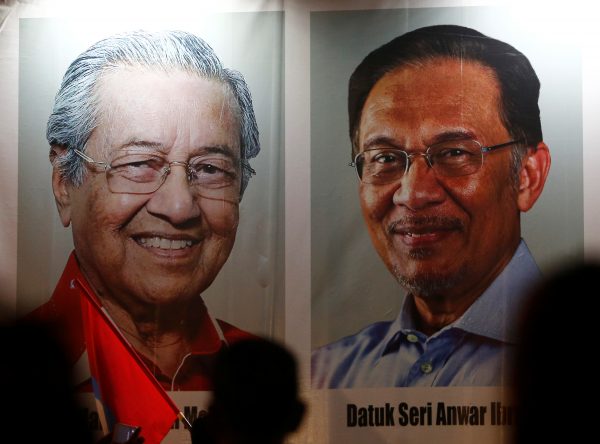Nobody had expected her to resign. She was secure in her party, having won internal elections with ease given her popularity as the ‘Princess of Reform’. But it was soon clear that she was troubled by growing politicking within both her party and the broader ruling Pakatan Harapan (PH) coalition of which PKR is a part. She was apparently concerned with the eroding reform spirit in PH and the impending entry of defectors from the former ruling United Malays National Organisation (UMNO). The defectors could destabilise the leadership transition from Prime Minister Mahathir Mohamad, who is also PH chairman, to Anwar Ibrahim, PKR’s president and Nurul Izzah’s father.
Nurul Izzah did not express it but the leadership transition was the most pressing issue by the time PKR held its national congress in November 2018. Ironically, the congress was meant to mark Anwar’s taking over of the party presidency from his wife, Wan Azizah, after his two decades of de facto leadership. But Anwar’s accession was overshadowed by the political battle that broke out in the form of an unexpectedly rough electoral contest between incumbent Mohamed Azmin Ali and Rafizi Ramli for the position of deputy president.
A former vice-president and up-and-coming leader, Rafizi claimed to be challenging Azmin to protect Anwar’s trajectory to the premiership. This implied doubts about Azmin’s ambition and it soon became public that Azmin harboured his own goal of succeeding Mahathir as prime minister — meaning he had to stop Anwar from rising to the top. For someone seen as Anwar’s long-time protege, Azmin’s move was a shock.
Rafizi claimed that before last year’s PKR congress, Azmin visited Anwar in Turkey and allegedly requested that Anwar not contest the presidency. Other sources say Azmin would take over the leadership and proposed that as PKR president, he would make Nurul Izzah his deputy and later make way for Anwar as prime minister. Clearly not amused by Azmin’s plan, Anwar stated that he would contest the PKR presidency nonetheless as widely expected.
Around the same time, some of Anwar’s advisers feared that troubles in the dethroned UMNO could impact the planned political transition from Mahathir to Anwar. The entry of UMNO leaders into Bersatu, another component of PH, could derail the succession plan. According to a UMNO insider, 35 UMNO MPs were planning to cross over to Bersatu. This group comprises pro-Mahathir UMNO MPs, which does not necessarily mean they are pro-Anwar.
Some believe Azmin has the tacit support of Mahathir, who may not want to hand over the premiership to Anwar despite repeated public statements that he will do so. But this narrative could well be an assumption of Mahathir’s intentions, although conspiracy theorists are eager to purvey it as fact. Azmin could also have been acting on his own behalf, or for people around Mahathir, but not necessarily Mahathir himself.
It was for this reason that Azmin was fiercely challenged by Rafizi who saw the move as an act of treachery. But Rafizi failed to unseat Azmin, which led to Anwar appointing the losing contenders, including Rafizi, into the leadership in an ‘inclusive move for the sake of party unity’.
Rafizi was appointed vice-president while Saifuddin Nasution Ismail, seen as a Rafizi ally, was retained as secretary-general. But that unleashed new instability in PKR, with repercussions not only for the unity of PKR but also the wider PH coalition due to PKR’s pivotal role in PH.
The two key PKR factions supporting either Azmin or Rafizi are poised for a fractious power struggle. If this breaks out as feared, some see the real battle being between Mahathir, who has a soft spot for Azmin, and Anwar, who thinks highly of Rafizi’s future potential. The trajectory ahead is difficult to predict. But one scenario is the departure of Azmin and his allies and supporters from PKR. Azmin himself has dismissed this.
Still, there is rampant speculation about him teaming up with another UMNO faction linked to former defence minister Hishammuddin Hussein to form a new party of defectors from various political entities. To what extent Azmin can bring other PKR MPs and supporters with him will test not only his actual power base but also Anwar’s real political standing in PKR. Azmin would take a big risk with such a potentially suicidal move.
If this power struggle continues, it will be Anwar’s new political crisis — it will test his leadership mettle, not only as PKR president but also as prime minister-in-waiting. It is highly unlikely that Anwar will not take counteraction, given the audacious challenge by his former protege. Anwar has already made it loud and clear that he will take on any challenge to his leadership.
The problem with this narrative is that Mahathir is portrayed as a man who is more obsessed with his ego than leaving behind a political legacy of success as a nation-builder. At the advanced age of 93, it is unlikely that he is unaware of his frailty and his race against time. He should make positive use of that time rather than ending up in new political battles. If he is to be known as Malaysia’s legendary leader, he would want to make peace with a successor who would sustain what Mahathir has built.
Yang Razali Kassim is Senior Fellow with the S Rajaratnam School of International Studies (RSIS), Nanyang Technological University, Singapore.
This is an updated version of an article that first appeared here on RSIS.

